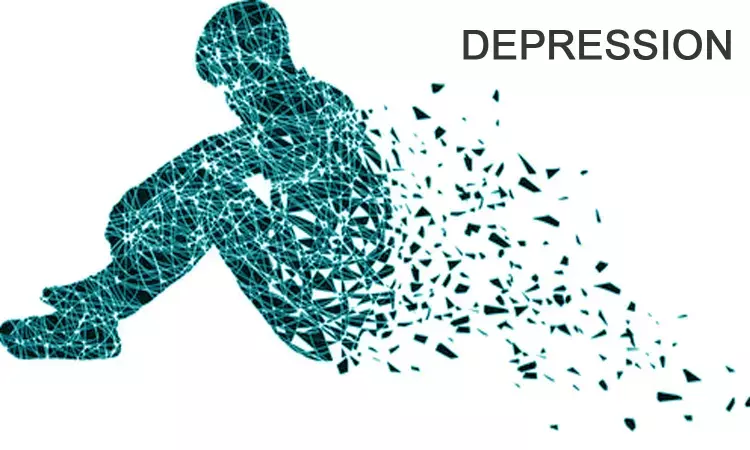- Home
- Medical news & Guidelines
- Anesthesiology
- Cardiology and CTVS
- Critical Care
- Dentistry
- Dermatology
- Diabetes and Endocrinology
- ENT
- Gastroenterology
- Medicine
- Nephrology
- Neurology
- Obstretics-Gynaecology
- Oncology
- Ophthalmology
- Orthopaedics
- Pediatrics-Neonatology
- Psychiatry
- Pulmonology
- Radiology
- Surgery
- Urology
- Laboratory Medicine
- Diet
- Nursing
- Paramedical
- Physiotherapy
- Health news
- Fact Check
- Bone Health Fact Check
- Brain Health Fact Check
- Cancer Related Fact Check
- Child Care Fact Check
- Dental and oral health fact check
- Diabetes and metabolic health fact check
- Diet and Nutrition Fact Check
- Eye and ENT Care Fact Check
- Fitness fact check
- Gut health fact check
- Heart health fact check
- Kidney health fact check
- Medical education fact check
- Men's health fact check
- Respiratory fact check
- Skin and hair care fact check
- Vaccine and Immunization fact check
- Women's health fact check
- AYUSH
- State News
- Andaman and Nicobar Islands
- Andhra Pradesh
- Arunachal Pradesh
- Assam
- Bihar
- Chandigarh
- Chattisgarh
- Dadra and Nagar Haveli
- Daman and Diu
- Delhi
- Goa
- Gujarat
- Haryana
- Himachal Pradesh
- Jammu & Kashmir
- Jharkhand
- Karnataka
- Kerala
- Ladakh
- Lakshadweep
- Madhya Pradesh
- Maharashtra
- Manipur
- Meghalaya
- Mizoram
- Nagaland
- Odisha
- Puducherry
- Punjab
- Rajasthan
- Sikkim
- Tamil Nadu
- Telangana
- Tripura
- Uttar Pradesh
- Uttrakhand
- West Bengal
- Medical Education
- Industry
Early life stress associated with youth-onset depression

Washington - A study in the Journal of the American Academy of Child and Adolescent Psychiatry (JAACAP), published by Elsevier, reports that individuals exposed to early life stress (ELS) were more likely to develop a major depressive disorder (MDD) in childhood or adolescence than individuals who had not been exposed to ELS.
Examining the association between eight different types of ELS and youth-onset depression, the authors found that while some types of ELS (e.g., poverty) were not associated with MDD, other types of stress, including emotional abuse, were associated more strongly with MDD than a broader assessment of ELS.
"Researchers have documented that early life stress increases the risk for developing depression in adulthood. We wanted to know the degree to which it was associated with depression earlier in life--specifically during childhood or adolescence," said lead author Joelle LeMoult, PhD, a researcher at the University of British Columbia, Vancouver, Canada. "Given that earlier onsets of depression often mean a more recurrent course across the lifespan. We found that exposure to early life stress more than doubled the likelihood someone will develop youth-onset depression.
"These findings indicate that there is a narrow window between adversity and depression during which we have the opportunity to intervene."
The findings are based on a meta-analysis of data from 62 journal articles and over 44,000 unique participants. Studies that assessed early life stress and the presence or absence of MDD before the age of 18 years were also included.
Compared to youth who were not exposed to ELS, youth who were exposed to ELS were 2.5 times more likely to develop MDD (OR=2.50; 95% CI [2.08, 3.00]).
The authors also conducted eight additional meta-analyses to examine the association between different types of ELS and a diagnosis of MDD during childhood or adolescence. Sexual abuse, physical abuse, death of a family member, domestic violence, and emotional abuse were associated with significantly higher risk for youth-onset MDD; in contrast, poverty, illness/injury, and exposure to a natural disaster were not.
Several variables moderated the association between ELS and youth-onset MDD. For example, studies that used interview-based assessments or included larger sample sizes reported stronger associations between ELS and depression.
Taken together, findings provide evidence that the adverse effects of ELS on risk for MDD manifests early in development, before adulthood, and varies by type of ELS. Further, findings support recommendations to use best-practice methods in early life stress research.
Hina Zahid Joined Medical Dialogue in 2017 with a passion to work as a Reporter. She coordinates with various national and international journals and association and covers all the stories related to Medical guidelines, Medical Journals, rare medical surgeries as well as all the updates in the medical field. Email: editorial@medicaldialogues.in. Contact no. 011-43720751
Dr Kamal Kant Kohli-MBBS, DTCD- a chest specialist with more than 30 years of practice and a flair for writing clinical articles, Dr Kamal Kant Kohli joined Medical Dialogues as a Chief Editor of Medical News. Besides writing articles, as an editor, he proofreads and verifies all the medical content published on Medical Dialogues including those coming from journals, studies,medical conferences,guidelines etc. Email: drkohli@medicaldialogues.in. Contact no. 011-43720751


